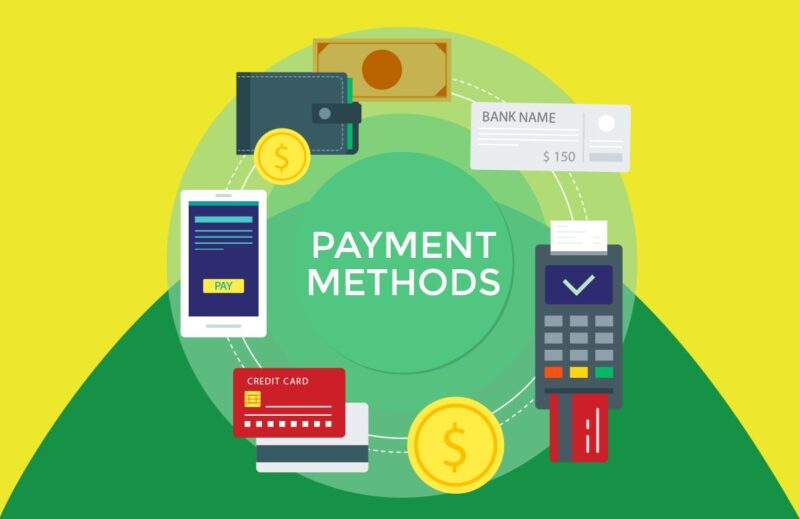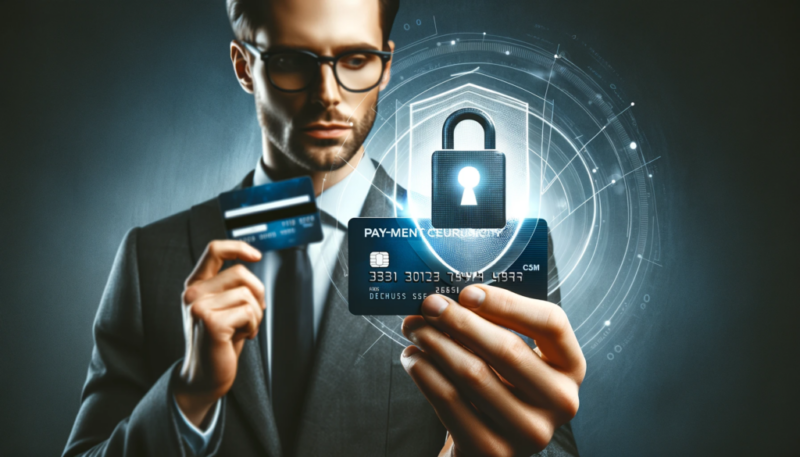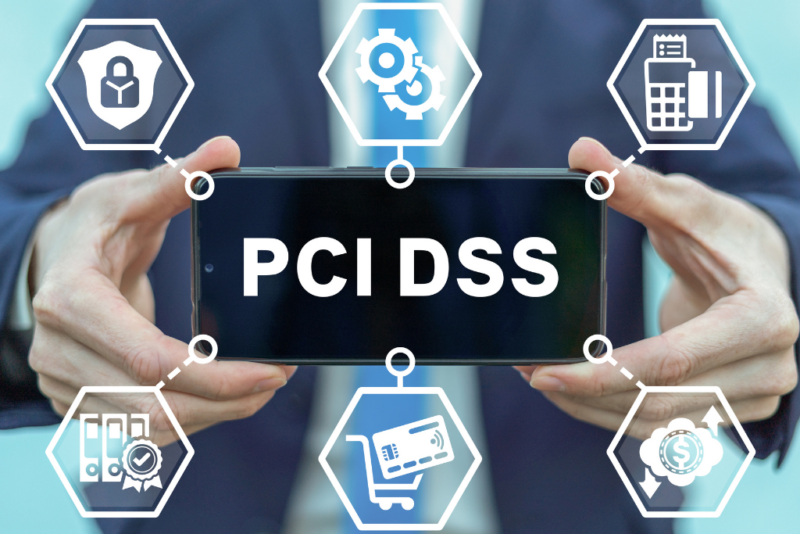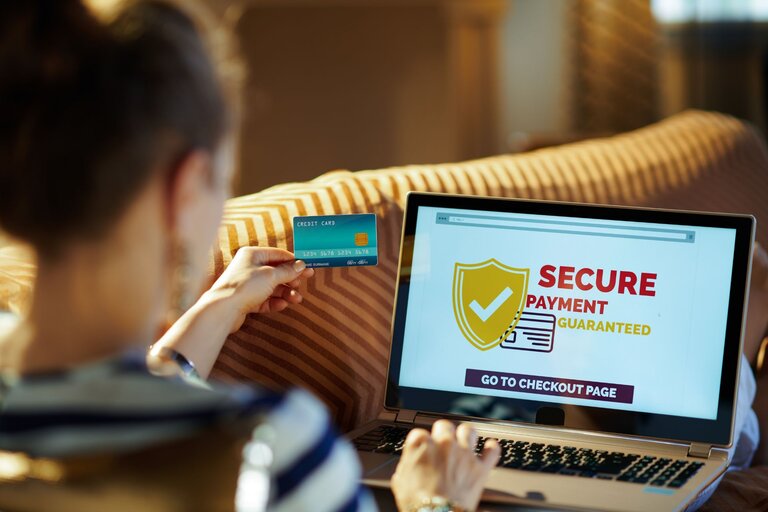Secure payment options are essential for businesses to protect customer data and maintain trust.
With rising cyber threats, implementing robust security measures is more important than ever to safeguard transactions and prevent fraud.
Overview of Payment Methods

Cash: Cash remains a straightforward payment method, though it lacks security and convenience compared to digital alternatives. Handling large amounts of cash can be risky for both businesses and consumers due to theft and loss.
Paper Checks: Checks are still used, especially for larger transactions. However, they are prone to fraud, such as check washing and forgery, making them less secure and efficient than electronic payments.
Credit and Debit Cards: Widely used due to convenience and acceptance, credit and debit cards offer fraud protection and rewards. However, they are vulnerable to skimming, cloning, and online fraud, necessitating strong security measures like EMV chips and tokenization.
Digital Wallets: Digital wallets, like Apple Pay and Google Wallet, store payment information securely and allow for quick transactions. They use encryption and tokenization to protect data, enhancing security over traditional card payments.
Mobile Payment Apps: Apps such as Venmo and Cash App enable easy peer-to-peer transactions. They incorporate security features like encryption and biometric authentication but can be targets for phishing and social engineering attacks.
Cryptocurrency Payments: Cryptocurrencies like Bitcoin offer decentralized, secure transactions using blockchain technology. While providing anonymity and reducing fraud, they pose regulatory challenges and are subject to high volatility.
Contactless Payments: Utilizing NFC technology, contactless payments offer speed and convenience, reducing the need for physical contact. They use tokenization and dynamic authentication to enhance security, but may still face risks from relay attacks.
Peer-to-Peer Payments: Services like PayPal and Zelle facilitate direct transfers between users. They rely on robust encryption and fraud detection systems but require users to be vigilant about phishing scams.
Blockchain Technology in Payments: Blockchain ensures secure, transparent transactions through decentralized ledgers. It reduces the risk of fraud and provides an immutable record of transactions, making it valuable for enhancing payment security.
Security Best Practices for Payment Processing

Encryption converts data into a coded format that can only be read with a key. In symmetric encryption, the same key is used for both encryption and decryption. Asymmetric encryption, on the other hand, uses a pair of keys—one public and one private—providing enhanced security.
Tokenization replaces sensitive information with unique tokens that hold no exploitable value. This approach minimizes the risk of data breaches since actual card details are neither stored nor transmitted, significantly reducing the attack surface.
When using a card machine for business, both encryption and tokenization ensure that customer payment information is handled securely, protecting against potential threats.
MFA adds an extra layer of security by requiring multiple forms of verification, such as passwords, biometrics, or OTPs. This makes it significantly harder for attackers to gain unauthorized access, even if one factor is compromised.
Common MFA methods include SMS-based OTPs, authenticator apps like Google Authenticator, and biometric authentication (fingerprint, facial recognition). Each method enhances security by combining different authentication factors.
Fraud prevention systems leverage machine learning to identify patterns and anomalies indicative of fraud. Human-engineered rules complement these systems by applying expert knowledge to flag suspicious activities.
Continuous monitoring and real-time analysis enable businesses to detect and respond to fraudulent activities promptly. Anomaly detection algorithms identify deviations from normal behavior, helping to prevent fraud before it occurs.
Compliance and Regulatory Considerations

PCI DSS sets security standards for handling card transactions, requiring measures like encryption, regular audits, and secure network infrastructure. Compliance helps protect against data breaches and maintain customer trust.
PCI DSS ensures that businesses follow best practices to safeguard cardholder data, reducing the risk of fraud and data breaches. Compliance is mandatory for businesses processing card payments, reinforcing security across the payment ecosystem.
General Data Protection Regulation (GDPR)
Impact on Data Protection and Payment Security: GDPR mandates strict data protection measures, affecting how businesses handle personal data, including payment information. Compliance requires secure storage, processing, and transmission of data, ensuring customer privacy and security.
Strong Customer Authentication (SCA)
Mandates under PSD2: SCA, part of the revised Payment Services Directive (PSD2), requires multi-factor authentication for online payments to enhance security. It aims to reduce fraud by ensuring that the person initiating the transaction is the legitimate cardholder.
Benefits and Implementation of 3D Secure 2 (3DS2): 3DS2 provides an additional security layer for online card transactions by requiring authentication through biometric or OTP methods. It enhances the customer experience while reducing the risk of fraud, supporting compliance with SCA.
Secure Online Payment Methods

Secure online card payments require implementing Multi-Factor Authentication (MFA) and adhering to Payment Card Industry Data Security Standard (PCI DSS) requirements. MFA enhances security by requiring two or more forms of verification, such as a password and a fingerprint or an OTP sent to a mobile device.
PCI DSS compliance ensures that businesses follow a set of security standards designed to protect cardholder data. These standards include maintaining a secure network, protecting cardholder data through encryption, implementing strong access control measures, regularly monitoring and testing networks, and maintaining an information security policy.
Digital wallets, such as Apple Pay, Google Wallet, and Samsung Pay, offer a secure method for online transactions by utilizing device-specific security features and tokenization.
Device-specific security includes the use of biometrics (fingerprint or facial recognition) and secure elements (dedicated hardware components) to store sensitive payment information. This ensures that even if a device is compromised, the payment information remains protected.
Tokenization further enhances security by replacing sensitive card details with a unique token during transactions. This token has no exploitable value outside of the specific transaction, meaning that even if intercepted, it cannot be used for fraudulent activities.
Secure bank transfers rely on Multi-Factor Authentication (MFA) to verify the identity of the account holder, ensuring that only authorized individuals can initiate transactions.
MFA can involve a combination of something the user knows (password), something the user has (OTP sent to a phone), and something the user is (biometric verification). This multi-layered approach makes it challenging for attackers to gain unauthorized access to bank accounts.
In addition to MFA, advanced fraud detection systems play a crucial role in securing bank transfers. These systems use machine learning algorithms and rule-based logic to monitor transactions in real-time, identifying and flagging unusual or suspicious activities.
The Bottom Line

Securing payment options is crucial for protecting customer data and maintaining trust. Implementing robust security measures and staying compliant with regulations ensure safe transactions and enhance customer confidence in your business.
Related Posts:
- 7 Security Measures Online Businesses Can Take to…
- Understanding Ethical Considerations of In-Game…
- 14 Best Cheap Keyboards 2024 - Mechanical & Membrane Options
- 10 Best CPU For Gaming 2024 - Top Processor Options…
- How Does Gaming Addiction Develop and Its Treatment Options?
- Testing and Optimizing Your Binary Options Trading…








